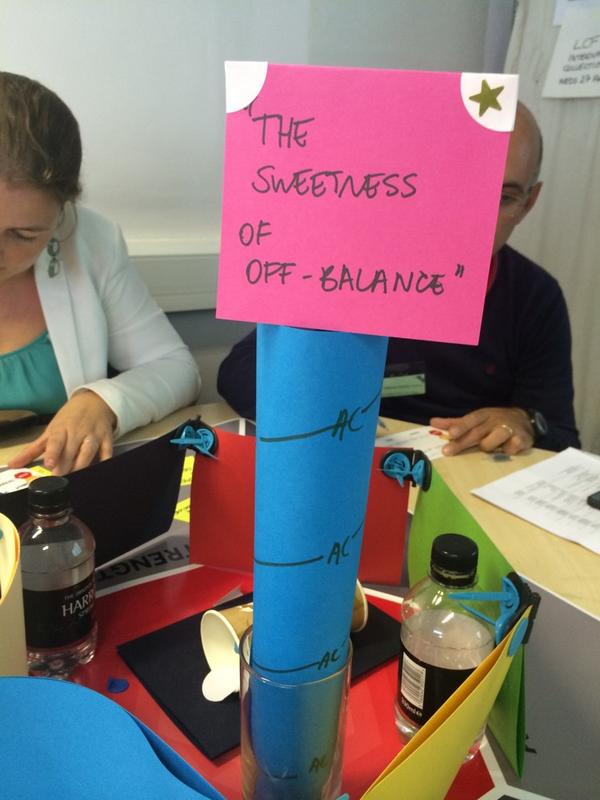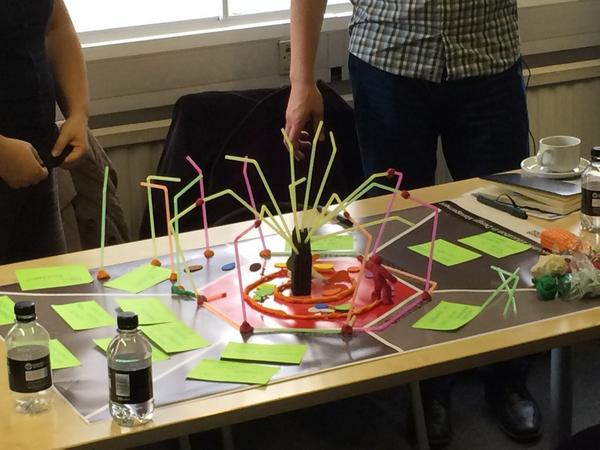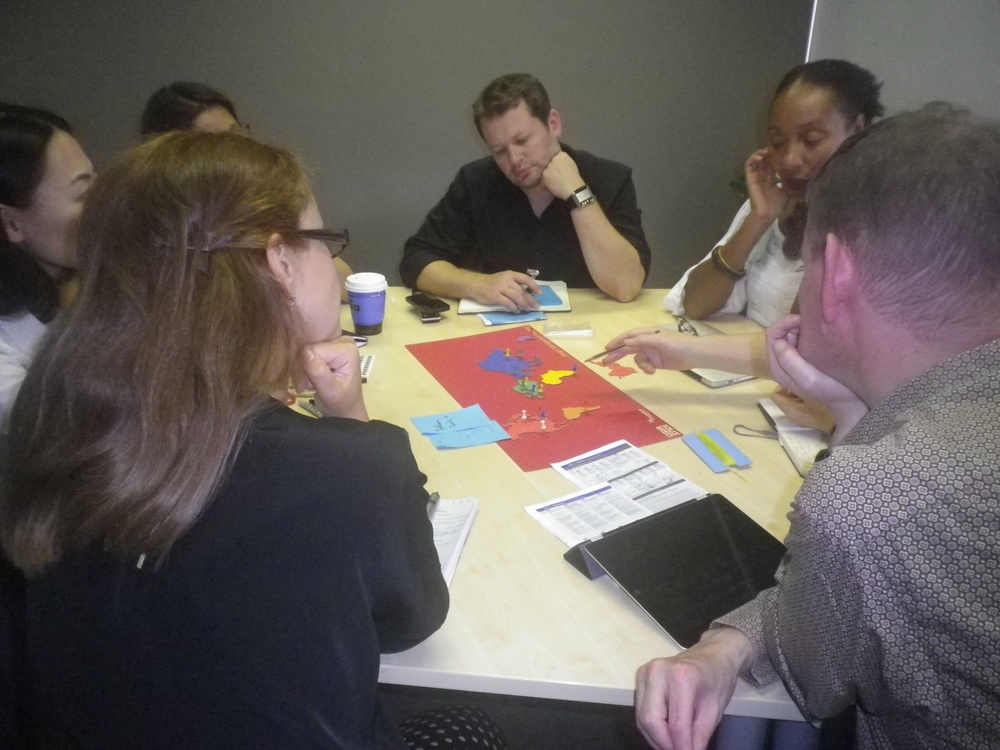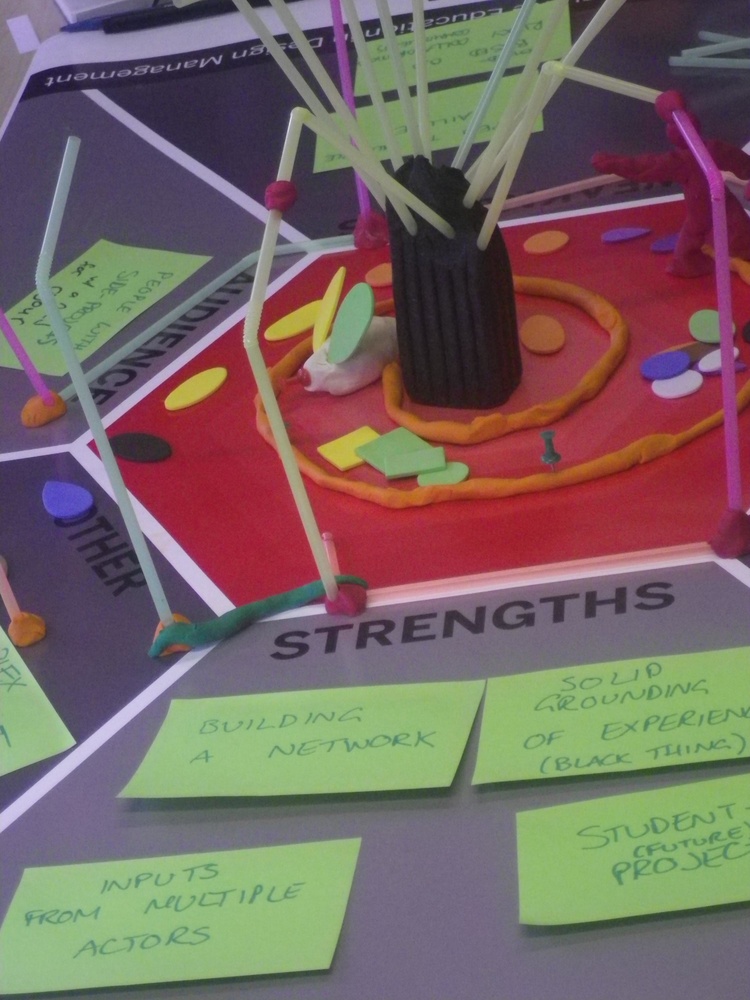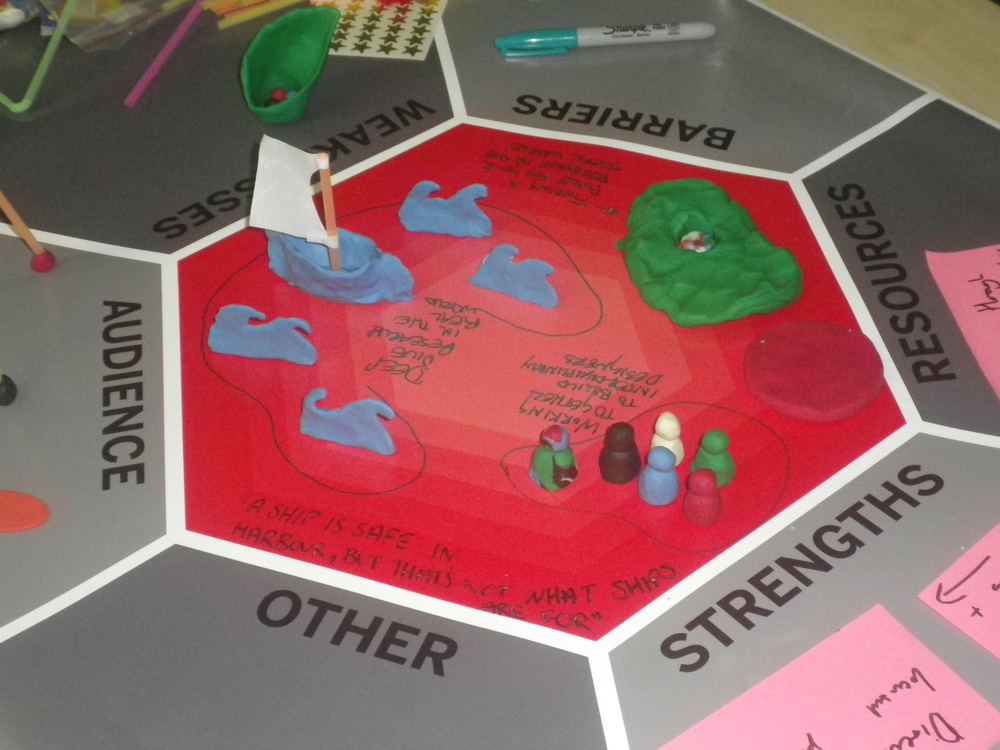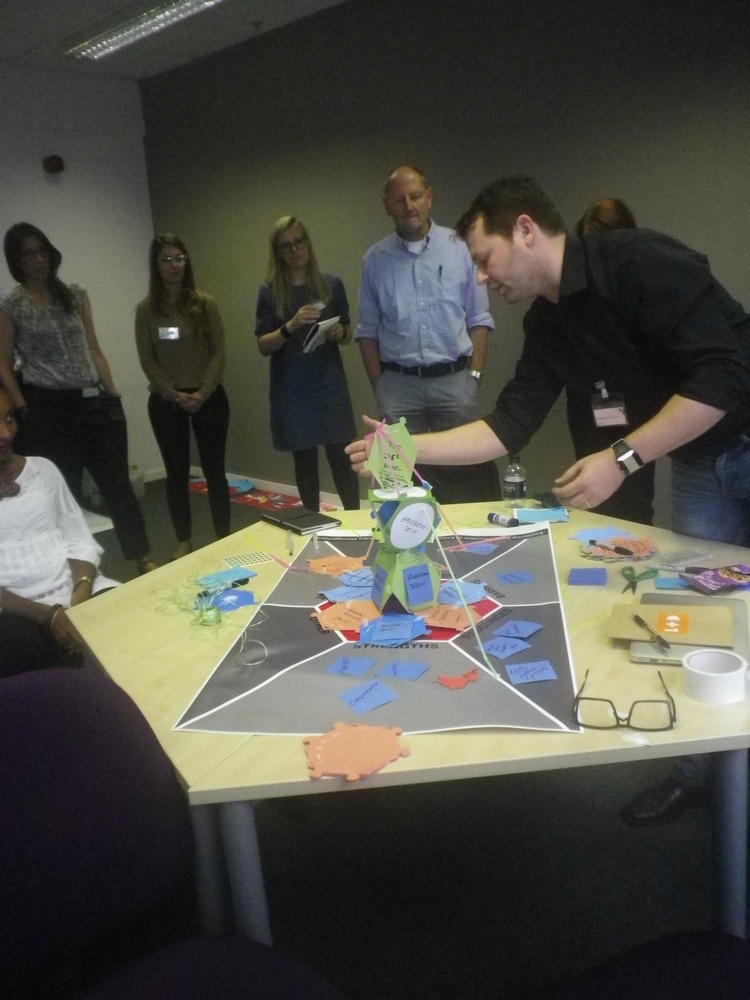At the recent Design Management Institute Conference in London, Emma Murphy and Naomi Jacobs ran a workshop which explored future models of executive education for designers and design managers. We welcomed 38 participants to the workshop, and 6 models were created. Each model embodied a range of ideas around the future of executive education in design management, geared towards helping designers and design managers experience more applied research training.
If you are interested to know more about the project, please contact e.murphy@gsa.ac.uk or n.jacobs@lancaster.ac.uk.
Workshop Abstract:
It is not uncommon to think of Design Management as something of a hybrid discipline that also transcends industry and academia. Definitions of design management are expansive. Designers can be practicing managers, and managers can be involved in managing design. Research can be conducted across these areas, by practitioners and academics, for various audiences and at different levels e.g. applied research, blue sky research and fundamental research. There are hybrid design management academics; for whom collaboration with industry is nothing new. However, with the research agenda emphasis on impact, industry collaboration is now more common than ever. As this collaboration becomes more visible, design managers in industry may also want to further engage with academics in the name of research, practice, or to develop new services, products – or even business models.
Within this collaborative culture, design managers may also want to further their careers with some form of educational qualification. This could be to help them do more in-house research, or to add some academic credibility to the work they do. Equally, academic institutions may want to develop their portfolio of courses to attract those working in industry.
If we were talking about the field of management, this may mean an MBA qualification. Indeed, more MBA courses in the UK are developing design strands. But if a designer managing design, or a design manager wanted to benefit from some kind of Executive Education, what would an alternative to the MBA look like? How can we educate design managers in a way that transcends industry and academia? Could making better connections between those running practices doing an Executive Design Management MBA and universities provide more “live” projects for other students? What would success criteria for these hybrid ecosystems look like? Who would these courses be aimed at?
These are just a few questions that this workshop will consider, with a view to developing early prototype models for Executive Education in Design Management.
Workshop Aim: To develop and critique future models of design management education.
Workshop Objectives:
• To identify the current provision of design management education (a map will be prepared in advance and participants can add any further schemes they know of);
• To discuss the gaps, and strengths within the current provision;
• Using designerly approaches (modeling, sketching, mapping, making) develop prototype models of design management education;
• To evaluate each model by considering a) strengths, b) weaknesses c) potential audiences d) resources required e) barriers; and
• For participants to identify the role they would like to play in making one (or more) of these models a reality. Where would they fit in the process and how are they going to act?


